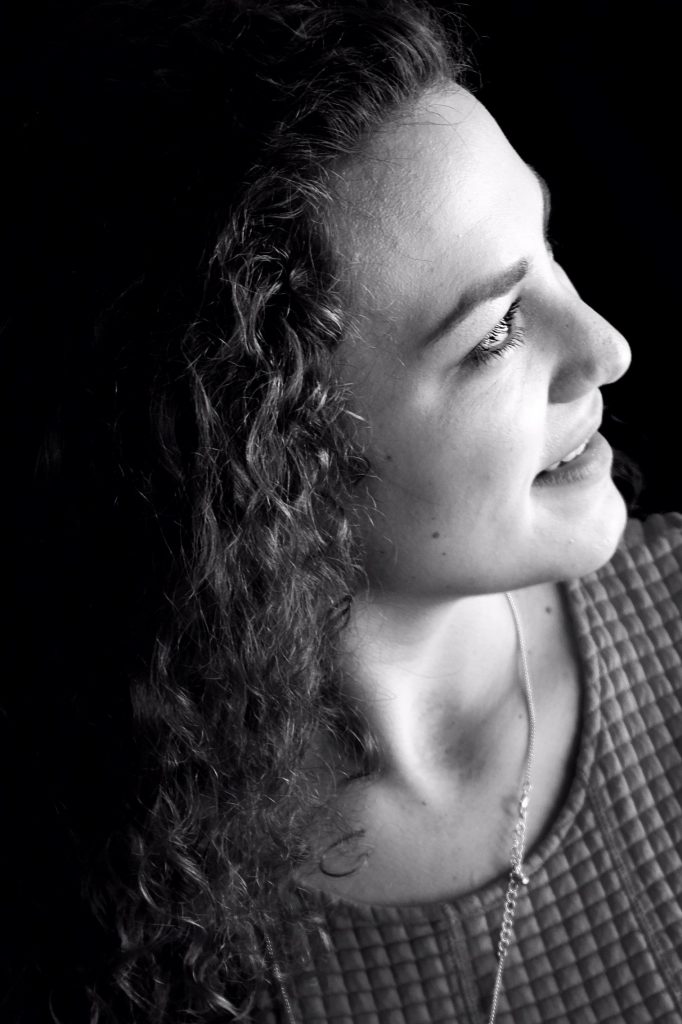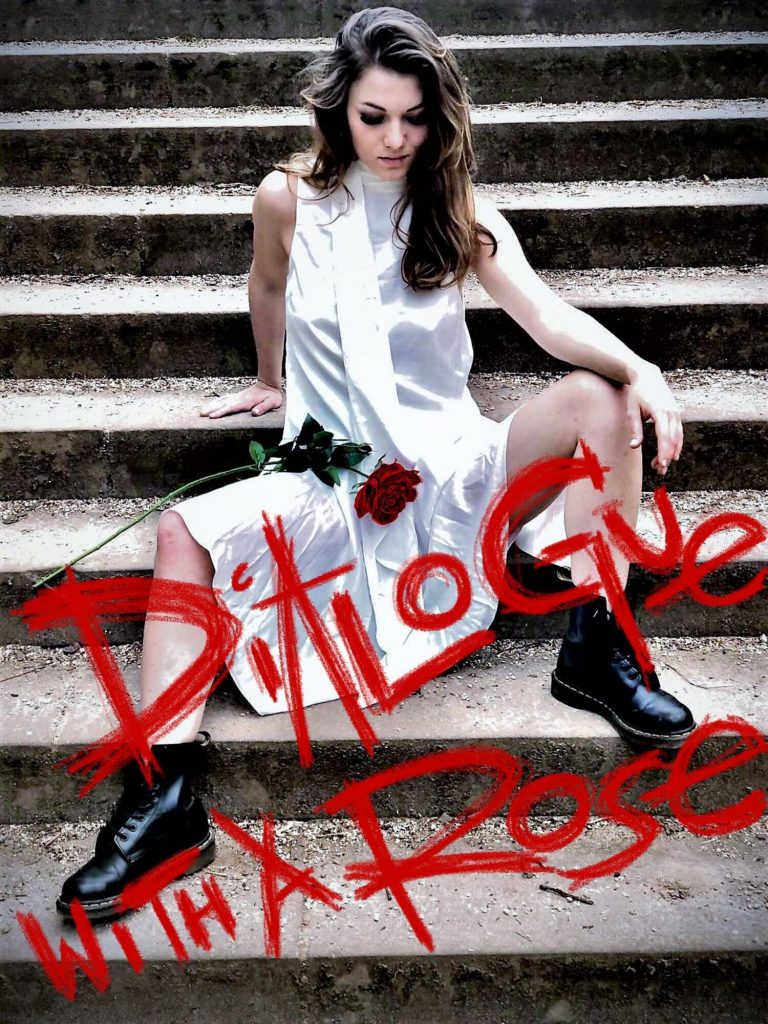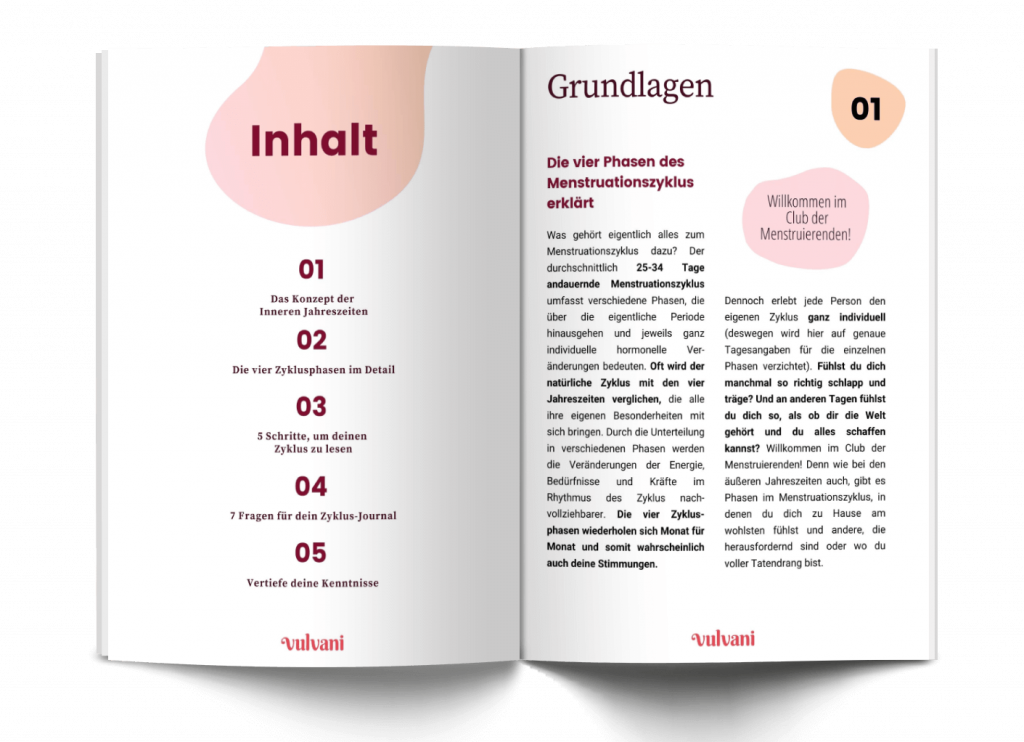
Discovering your menstruation as a spiritual practice
Yasmine understands her menstruation as a spiritual practice and shares in this interview how she is connecting more with her own body through cycle awareness.
‘Be a lady they said’, a poem by Camille Rainville went viral this year because of a video by actress and politician Cynthia Nixon. Images of women are being questioned – and with them our society as well. As a young artist and feminist, I notice this all around me. Visual arts, photography, literature, acting, music and media: everyone wants to participate in a contemporary way – me too, of course – and initiate a dialogue on a topic between pride and shame: being a woman. And thus also against period taboos.
But what about classical music? That’s what I studied and that’s the genre I’ve dedicated myself to. But doesn’t my classical repertoire convey a certain image of women that I actually want to oppose? What is the position of musicians today? Especially as a singer, I would like to find a position, because we work concretely with text set to music.
In the classical song, the woman is a “girl flower”, a “rose-like”, fairy-tale beautiful girl: virginal pure, well-behaved, decent and above all SILENT. 3000 years of patriarchy have shaped this image of the silenced female sex. And yet the rose is a symbol for the vulva or even menstruation. “I have my flower/ fleur” still refers directly to the monthly bleeding. But that is not what is being talked about. Female sexuality and especially menstruation are banished from consciousness. We continue to use these beautiful images and reprogram the information behind them.
In my profession, I often deal with sexism, sexual harassment in the workplace, and a lack of solidarity among women, except when it comes to solidary silence. That’s the classical bubble, and if you don’t want to be part of it, you’ll just have to leave. Modern staging here still means dressing up the villain as Hitler or showing naked breasts and a few upside-down crosses, – and if that’s too extreme for you, you just listen to the 200th song recital on the subject of “love and love affairs”. I often feel tongue-tied in this business.

When Mara and I started talking about this concept about 1.5 years ago, we immediately started playing with the image of the flower. Indeed, the talented and educated singer confided in me that she felt reduced to her appealing appearance. So we put together a repertoire that tells exactly that: Most importantly, a young woman has to be pretty. But instead of being silently pretty, she also speaks. She talks about little drops of blood on the floor, about getting “horny,” about the mystique of femininity, and about the creative power that lies within our menstrual cycle.
But she is not alone on stage, musically and scenically she is accompanied by a string quartet consisting of four young female musicians. (That’s right, we only have five women on stage. Still, we don’t think menstruation is just a women’s issue. The seventh member of our team is a man. And the studied gynecologist is as passionate about the subject as we are.)
When I told my mother over a year ago that I was doing a concert on menstruation, her response was, “Oh please don’t.” That was the sign for me that there was a need to talk. A year later, she also gave me an interview. There is a difference between “not wanting to talk about it with everyone” and “not wanting to know about it.” Everyone deals with menstruation in one way or another, and yet one in five high school students doesn’t know three adults to whom they can turn with a problem. The period taboo runs deep.
We have all heard “horror stories” from “distant” countries and cultures. There, “menstruation” is taboo – but not here. We could immediately add another topic here: “colonialism” in our sublime culture. But even in our educated, western world there are things that are simply not talked about and shocking stories of girls who are left alone with blood, hormonal chaos and pain behind closed bathroom doors.

I am a concert designer. In my concerts, all sensory perceptions play a role. I also think about things like: With what mood does the concertgoer come into the concert space and how do I sensitize them to my art? So we don’t make beautiful, classical music and talk about menstruation in between. It’s more: the audience enters a tampon wonderland. The room becomes a fairyland for 30 minutes in a sound and space installation. Everything is white, pure and apparently menstruation-free. Sunlight glitters in white tulle fabric and scraps of tampon advertising emerge from every corner of the room – “female empowerment”?
When the auditorium lights are turned off, the menarche begins. I call this part of the concert ” Blossoming “. Between the pieces, however, not only the five musicians on stage share beautiful and frightening stories about the first bleeding. In electronic soundscapes a chorus of menstruation is created surrounding the audience, which I have built from various interviews. My interview partners will be speaking again and again during the concert (editor’s note: Britta was also one of the interview partners for the concert). We also take the time to do some menstrual education. So we talk about loving parents, menstrual cramps and the big lies of our society.
In the second part, the five musicians are “overflowed” by shame. We represent on stage the attacking society as well as the shame-stricken victim. And in the end it becomes apparent that these are often the same people. The four musicians try to silence Mara, to teach her shame and finally shout the name of the block at her: “Cover yourself”. In the third part, “Fading?” it then becomes mystical. Menstruation is cultural-historically the beginning of all life, a source of magic, mysticism, sanity, and supernaturalism. Yet images of menstruation were demonized and the more sacred something was in matriarchy, the more dangerous it was to patriarchy. So the sacred menstruation “tapua” becomes a taboo.
The last block is my summary. I can see myself as a political activist, a mystical goddess of my own menstruation, or just a woman who knows herself. This results in a stronger woman and ultimately a healthier society. Don’t let anyone tell you how to act. Instead of a “good girl,” be a “good to yourself girl.”
But the centerpiece of this concert is the costume. Our singer Mara enters the stage in a ball gown and glitter cape. But in the course of the concert she gets undressed piece by piece, exposes herself and starts to let her menstruation become visible. Together with a costume designer, we designed the four layers of the costume in such a way that Mara is gradually “delivered” on stage and figuratively sheds the chains of society. In the end, the fairy-like princess stands in front of the audience in her underwear, hiding neither her body nor her menstruation.
But there are not only classical songs to be heard. The soundscapes evolve into electronic compositions and time and again jazz elements emerge in improvisation and works by Magdiel Baptistin Vaillant to break with the classical repertoire. The lighting moods and the musicians’ positions in the room further support these mood changes.
In the end, we don’t have ONE solution, but ideas, thoughts and above all a conversation about period taboos. Because the classical music business also has the task of questioning things. Music cannot exist without context. Because NO staging is also a kind of staging. And even though this is questioned especially in these times: that’s exactly why art is relevant to the system. Every time we as artists go on stage, we also get this stage to communicate with our audience. So far, however, we have not had the opportunity to be on stage with “Dialogue with a rose”. Due to Corona, two attempts have already failed. But at the end of November we were filmed the concert in the final of the concert concept competition d-bue.de. Next year we finally want to present our menstruation concert live and hopefully get the opportunity to perform at different venues.
In any case, our team, consisting of the string quartet (Laura Ion, Myriam Geßendorfer, Lilia Rubin, Kiara Konstantinou), the singer (Mara Maria Möritz), the composer (Magdiel Baptistin Vaillant) and myself as the artistic director, are on fire for our first menstruation concert, in which classical music becomes the ambassador of a new female figure and against period taboos.



Yasmine understands her menstruation as a spiritual practice and shares in this interview how she is connecting more with her own body through cycle awareness.

What options are there for male birth control? Ailsa delivers an overview of what is available now, and what may come in the future.

Sustainable underwear? The founders of TUKEA talk about fair labour conditions, body diversity and body literacy.
…and empower countless women to make empowered choices about their bodies!

